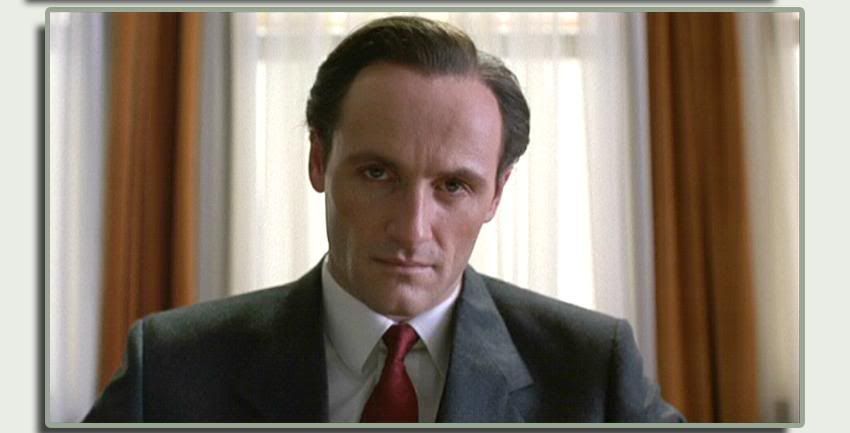This is such a fascinating approach I'm surprised that it hasn't been ripped off more; it did inspire a classic episode of The Simpsons but that's another story. Inundating the audience with different facets of the life of Glenn Gould and allowing them to form their own synthesis of everything presented is a bold choice, but it works splendidly, and with all the beautiful music and constantly shifting scenery and tone its almost impossible for anyone to get bored. Most importantly, the unique approach serves to examine the contradictions presented by the fascinating figure, the child prodigy piano and mercurial genius whose favorite piece of music, the Goldberg Variations by Bach (also a favorite of Hannibal Lector), serves as inspiration for the 32 part structure of the film.
Gould gave lengthy and well-reasoned arguments about his decision to abandon public performing, citing the un-egalitarian nature of concert halls which only provide the proper experience for those wealthy enough to afford tickets, or in most cases, the very best tickets that provide unobstructed views and proper acoustics. He also felt that modern performers were treated like trained animals, with concert halls filling with crowds who wanted to see him perform, secretly anticipating any possible error, just to see if anyone really could play so magically and flawlessly. Gould gave no advance notice of his decision to quit public performing, and the film devotes one segment to the final performance and his pre-show conversations with a stagehand, although his exact motivations are difficult to interpret.
But when Gould throws himself into recording, he is never able to break his habit of humming along and foot-tapping along with the music. Never. Engineers must work tirelessly with the equipment available to eliminate the traces of these unusual behaviors as much as possible. The discrepancy seems irreconcilable, and questions about just why Gould quit touring dog him the remainder of his life, even as his recordings enjoy enormous popularity worldwide. Gould's long difficult medical history likewise benefits from the fractured storytelling, allowing us to view him sometimes as a drug addict, sometimes as a hypochondriac, and sometimes as a genuinely ill person who never managed to receive proper care for his chronic conditions.
With all the different Glenn Goulds present in the film, its almost unthinkable to consider Colm Feore's performance as anything less than a triumph. Its very easy to imagine an actor playing a role numerous different ways and delivering a muddled or overwrought performance. Gould easily could have come across as a space alien if assayed by a different actor, but Feore avoids that trap and instills recurring humanity and emotion into all his scenes. Just imagine what someone like Nicolas Cage could/would have done with his performance. Thank goodness for Colm Feore, who went on to parts in American films like the genius doctor who invents face-swapping for Nicolas Travolta and John Cage in Face/Off, or the King of the Frost Giants in this year's Thor, and who can always be counted on for a solid performance. He's funny as the jet-flying attorney in The Insider and he was creepy as hell the same year in the Stephen King TV Miniseries The Storm Of The Century. Quite the range, but you can see it all here in one film; well, thirty two short films really.
 |
| Hi I'm Colm Feore |

No comments:
Post a Comment